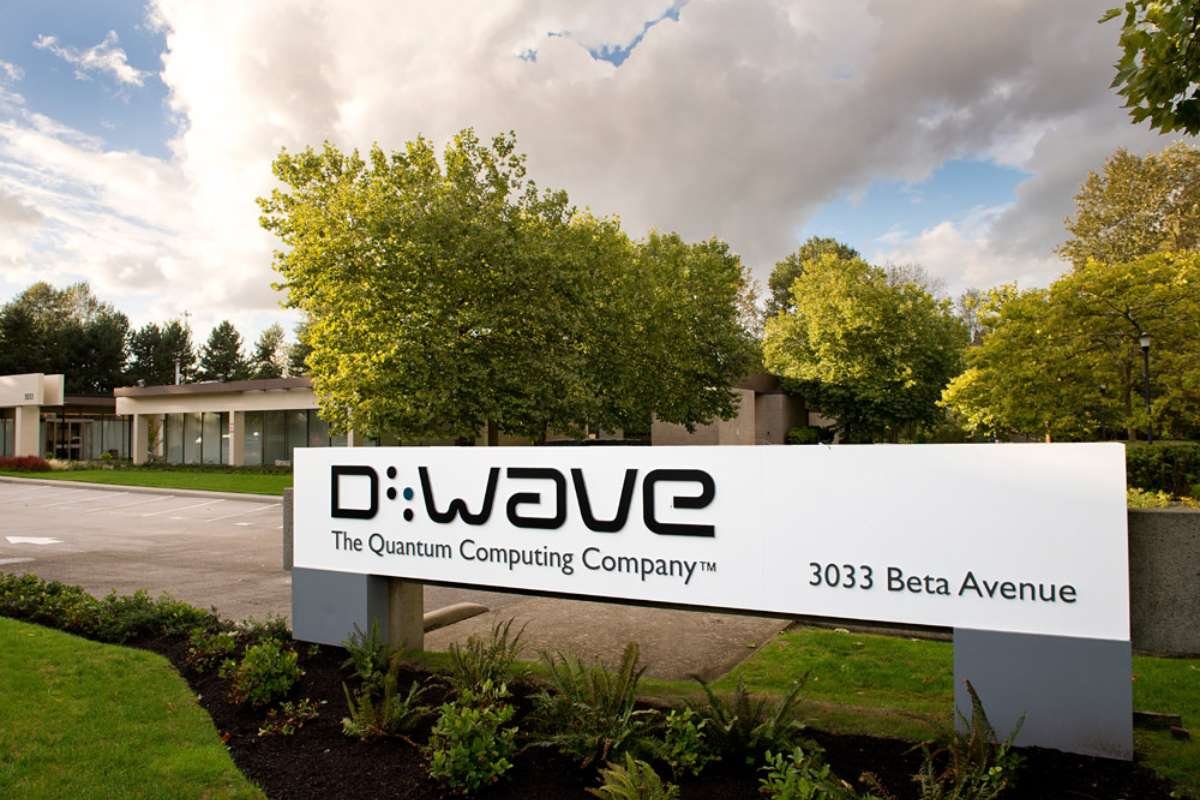“Quantum computing isn’t just the next step in computing; it’s the leap that will redefine what computers can do.”
Quantum computing is shifting from a futuristic idea to a multi-billion-dollar industry. Valued at $615 million in 2023, the market is set to exceed $8 billion by 2030, growing at a 56% CAGR, fueled by major investments and advances in qubit stability and error correction.
Unlike classical computers, which process information as 0s and 1s, quantum computers use qubits, allowing them to perform millions of calculations simultaneously. This capability is opening doors to solving complex problems in drug discovery, financial modelling, climate forecasting, and artificial intelligence tasks that would take conventional computers thousands of years to complete.
Leading this revolution are top quantum computing companies like IBM, Google, Microsoft, and innovative startups such as Rigetti and IonQ. These companies are not only building cutting-edge hardware but also offering cloud platforms and hybrid computing solutions, making quantum power accessible to businesses worldwide. In this blog, we explore the most influential quantum computing, its breakthroughs, and how they are shaping the future of technology.
What is Quantum Computing?
Quantum computing uses qubits instead of classical bits, allowing computations in multiple states at once through superposition and entanglement. This enables quantum computers to solve problems that would take traditional computers years or even millennia in just seconds.
Applications include drug discovery, AI modelling, cryptography, and logistics optimisation. Leading quantum computing companies like IBM, Google, and Microsoft are developing large-scale processors and cloud platforms, while startups such as Rigetti and IonQ focus on innovative qubit designs and hybrid solutions.
According to McKinsey, quantum computing could unlock $700 billion in value across industries by 2035, highlighting why these companies are racing to dominate the field.
Key Factors Driving Quantum Computing Companies
The rapid growth of quantum computing is fueled by several critical factors:
1. Investment in Research and Development
Quantum computing companies are highly complex, requiring significant R&D. Tech giants like IBM and Google spend billions annually on developing stable qubits and scalable quantum processors. Startups, while smaller, attract venture capital. Rigetti raised $200 million in funding for its quantum systems.
2. Government and Industry Support
Governments worldwide are investing heavily in quantum technology. The U.S. government allocated $1.2 billion in 2023 for quantum initiatives, while the European Union announced a €1 billion quantum flagship program. Such support accelerates innovation and adoption.
3. Strategic Partnerships and Collaborations
Quantum computing companies often partner with academic institutions, cloud providers, and enterprises. For instance, Microsoft collaborates with Honeywell and Fermilab, and IBM partners with over 20 universities to advance quantum research. These collaborations help bring theoretical breakthroughs to real-world applications.
4. Patent Portfolios and Proprietary Technology
Owning cutting-edge technology is key to staying competitive. Companies like Google and IonQ hold extensive quantum computing patents, protecting innovations in qubit design, error correction, and hybrid computing methods.
5. Cloud-Based Accessibility
Offering quantum computing via the cloud is a game-changer. Platforms like IBM Quantum Cloud, Microsoft Azure Quantum, and Amazon Braket allow businesses and researchers to access quantum processors without owning expensive hardware, expanding market reach.
These factors collectively empower quantum computing to innovate faster, attract talent and funding, and build solutions that could redefine industries in the next decade.
Top 10 Quantum Computing Companies in 2025
The quantum computing companies are dominated by a mix of tech giants and innovative startups. These companies are leading breakthroughs in hardware, software, and cloud platforms, making quantum technology more accessible and powerful.
1. IBM Quantum

| Founded | 1911 |
| CEO | Arvind Krishna |
| Headquarters | Armonk, New York, USA |
| Revenue | $1 billion (2024) |
| Key Technology | Superconducting qubits, IBM Quantum System One |
IBM Quantum is one of the most influential quantum computing companies, offering enterprise and research-grade quantum solutions. Its Qiskit platform allows developers globally to design, test, and run quantum algorithms on real hardware. IBM’s cloud-based approach enables experimentation without costly infrastructure.
The company is actively collaborating with industries like pharmaceuticals, finance, and energy to apply quantum computing for real-world problem-solving. IBM also invests in workforce development, providing certifications and training programs for quantum engineers.
2. Google Quantum AI

| Founded | 2013 |
| CEO | Sundar Pichai (Alphabet Inc.) |
| Headquarters | Mountain View, California, USA |
| Revenue | $282.8 billion (Alphabet 2024) |
| Key Technology | Superconducting qubits |
Google Quantum AI focuses on cutting-edge research, demonstrating the computational advantages of quantum processors over classical systems. Its work in quantum supremacy has set a benchmark for the industry. The company actively develops algorithms for chemistry simulations, AI, and optimisation problems, offering tools for academic and corporate research.
Open-source contributions allow global developers to implement advanced quantum methods. Google also invests in hybrid quantum-classical approaches to make quantum computing more practical for industrial applications.
3. Microsoft Azure Quantum

| Founded | 1975 |
| CEO | Satya Nadella |
| Headquarters | Redmond, Washington, USA |
| Revenue | $245 billion (2024) |
| Key Technology | Topological qubits, a hybrid cloud platform |
Microsoft Azure Quantum is one of the leading quantum computing companies, bridging hardware innovation with cloud accessibility. Its hybrid model allows enterprises to integrate quantum processing into existing workflows, enhancing tasks like financial modelling and logistics optimisation.
Microsoft supports developers with extensive toolkits for building quantum applications and collaborates with research institutions worldwide. The company’s topological qubits are designed for long-term stability, enabling scalable quantum computation. Azure Quantum also fosters an ecosystem of partnerships to accelerate adoption across industries.
4. Rigetti Computing

| Founded | 2013 |
| CEO | Chad Rigetti |
| Headquarters | Berkeley, California, USA |
| Revenue | $10.79 million (2024, estimated) |
| Key Technology | Superconducting qubits, hybrid quantum-classical computing |
Rigetti Computing specialises in scalable quantum hardware and hybrid architectures. Its cloud platform allows developers and businesses to run quantum algorithms alongside classical computing workflows. Rigetti’s focus includes optimisation, machine learning, and computational chemistry, offering practical applications for enterprise clients.
The company actively benchmarks qubit performance and error rates, ensuring reliability for commercial use. By partnering with research institutions, Rigetti fosters innovation and accelerates the practical deployment of quantum solutions.
5. D-Wave Systems

| Founded | 1999 |
| CEO | Alan Baratz |
| Headquarters | Burnaby, British Columbia, Canada |
| Revenue | $8.8 million (2024, estimated) |
| Key Technology | Quantum annealing |
D-Wave is one of the prominent quantum computing companies focusing on optimisation and machine learning applications. Its quantum annealing systems help businesses solve problems in logistics, finance, traffic flow, and material design.
D-Wave also provides hybrid solvers that combine classical and quantum computing to tackle larger problems efficiently. The company has been recognised for creating the first commercially available quantum computer and continues to innovate in hardware and software. Its technology is increasingly used in practical enterprise applications.
6. IonQ

| Founded | 2015 |
| CEO | Peter Chapman |
| Headquarters | College Park, Maryland, USA |
| Revenue | $43.1 million (2024, estimated) |
| Key Technology | Trapped-ion qubits |
IonQ specialises in high-fidelity trapped-ion quantum computers, providing low-error qubits suitable for commercial applications. Its cloud-based approach allows enterprises to leverage quantum computing without owning physical hardware.
IonQ collaborates with companies in chemistry, finance, and AI research, applying quantum algorithms to complex real-world problems. The company also actively contributes to algorithm development and benchmarking to improve quantum processing accuracy. IonQ’s public listing has made it a key player for investors interested in quantum innovation.
7. Honeywell Quantum Solutions

| Founded | 2015 |
| CEO | Alan Shaw |
| Headquarters | Broomfield, Colorado, USA |
| Revenue | $38.5 billion (Honeywell parent, 2024) |
| Key Technology | High-fidelity qubits |
Honeywell is among the top quantum computing companies developing hardware for high-precision applications. Its focus includes industrial optimisation, chemical simulations, and secure communication. By merging with Cambridge Quantum, Honeywell expanded into software, quantum algorithms, and cryptography solutions.
The company actively collaborates with academic institutions to push quantum research boundaries. Honeywell also emphasises enterprise adoption, helping businesses integrate quantum computing into operational workflows.
8. Alibaba Quantum Labs

| Founded | 2015 |
| CEO | Daniel Zhang |
| Headquarters | Hangzhou, China |
| Revenue | $130.35 billion (Alibaba Group, 2024) |
| Key Technology | Superconducting qubits, cloud-based quantum services |
Alibaba Quantum Labs provides cloud-accessible quantum solutions for enterprises in Asia. The company focuses on logistics, financial modelling, and AI optimisation, enabling faster computation of complex problems. Its collaboration with top universities drives fundamental research in superconducting qubits and algorithms.
Alibaba also invests in developing industry-specific quantum applications, making it easier for businesses to adopt quantum solutions. The company is positioned as a leader in Asia’s quantum computing ecosystem.
9. Amazon Braket

| Founded | 2019 |
| CEO | Andy Jassy |
| Headquarters | Seattle, Washington, USA |
| Revenue | $633 billion (Amazon, 2024) |
| Key Technology | Cloud quantum computing platform |
Amazon Braket is among the leading quantum computing companies offering a flexible cloud platform that supports multiple hardware types. Its platform enables developers and enterprises to experiment with algorithms across superconducting and trapped-ion qubits.
Amazon Braket accelerates the adoption of quantum solutions in finance, logistics, and AI by providing scalable, pay-as-you-go access. Continuous updates and integration with the AWS ecosystem make it a practical choice for organisations testing quantum workflows.
10. Xanadu

| Founded | 2016 |
| CEO | Christian Weedbrook |
| Headquarters | Toronto, Canada |
| Revenue | $10 million (2024, estimated) |
| Key Technology | Photonic qubits |
Xanadu develops photonic quantum computers that operate at room temperature, reducing operational complexity. Its cloud platform enables researchers to perform simulation, optimisation, and quantum machine learning tasks efficiently.
Xanadu’s photonic approach offers high scalability with lower error rates compared to traditional qubits. The company collaborates with academic institutions to refine algorithms and provide industry-ready quantum solutions.
11. PsiQuantum

| Founded | 2016 |
| CEO | Jeremy O’Brien |
| Headquarters | Palo Alto, California, USA |
| Revenue | $15 million (2024, estimated) |
| Key Technology | Photonic qubits, large-scale fault-tolerant quantum computing |
PsiQuantum is one of the major quantum computing companies working on fault-tolerant, large-scale systems. Its photonic qubits are designed for enterprise applications, AI, and scientific simulations. PsiQuantum emphasises long-term scalability, aiming to surpass current hardware limits.
Partnerships with universities and research labs help advance algorithm development and practical deployment of quantum solutions. The company is seen as a frontrunner for fully operational commercial quantum machines.
12. Cambridge Quantum Computing

| Founded | 2014 |
| CEO | Ilyas Khan |
| Headquarters | Cambridge, UK |
| Revenue | $12 million (2024, estimated) |
| Key Technology | Quantum software, algorithms for chemistry and machine learning |
Cambridge Quantum focuses on software-driven quantum solutions. Its tools enable enterprises to apply quantum computing in drug discovery, AI modelling, and cryptography. By merging with Honeywell, Cambridge Quantum expanded its reach in hybrid quantum-classical solutions. The company also leads efforts in quantum cybersecurity, providing secure communication protocols.
13. Rigetti Japan (Subsidiary of Rigetti Computing)

| Founded | 2021 |
| CEO | Chad Rigetti |
| Headquarters | Tokyo, Japan |
| Revenue | $5 million (2024, estimated) |
| Key Technology | Cloud-based superconducting qubits |
Rigetti Japan is one of the emerging quantum computing companies bringing cloud-based quantum solutions to Asian enterprises. The subsidiary focuses on hybrid computing to solve optimization, simulation, and machine learning problems.
By localising infrastructure, Rigetti Japan accelerates the adoption of quantum computing in regional markets. Collaboration with universities and corporations strengthens its R&D pipeline.
14. QuEra Computing

| Founded | 2019 |
| CEO | Mikhail Lukin |
| Headquarters | Boston, Massachusetts, USA |
| Revenue | $8 million (2024, estimated) |
| Key Technology | Neutral atom qubits |
QuEra uses neutral atom technology to build highly scalable quantum systems. Its platform supports advanced simulations, including materials research, chemical modelling, and optimisation tasks.
The company emphasises low-error qubits and collaborates with academic institutions to refine algorithms. QuEra aims to provide enterprise-ready quantum solutions for industries requiring large-scale computation.
15. Alpine Quantum Technologies (AQT)

| Founded | 2018 |
| CEO | Johannes Handsteiner |
| Headquarters | Innsbruck, Austria |
| Revenue | $6 million (2024, estimated) |
| Key Technology | Trapped-ion qubits |
Alpine Quantum Technologies is among the leading quantum computing companies in Europe, developing high-precision trapped-ion qubits. Its focus is on industrial adoption, research simulations, and enterprise integration.
AQT collaborates with universities and companies to develop scalable and reliable quantum solutions. Its processors are designed for low-error, high-performance operations, making them ideal for scientific and commercial applications.
Applications of Quantum Computing
Quantum computing is not just a technological breakthrough; it has the potential to transform entire industries. Here’s how quantum computing is applying this technology in real-world scenarios:
1. Healthcare and Drug Discovery
Quantum computers can simulate complex molecules and chemical reactions at speeds impossible for classical computers. Companies like IBM and Google are working on drug discovery simulations that could accelerate the development of new medicines, potentially reducing drug development timelines from 10 years to just a few months.
2. Finance and Risk Modelling
Financial institutions are using quantum algorithms to optimise portfolios, assess risk, and model markets. Microsoft Azure Quantum and D-Wave collaborate with banks to improve risk analysis and fraud detection, offering faster and more accurate decision-making.
3. Artificial Intelligence and Machine Learning
Quantum computing can process massive datasets and optimise AI models efficiently. Startups like Rigetti and IonQ are exploring quantum-enhanced machine learning to improve pattern recognition, recommendation engines, and predictive analytics.
4. Logistics and Supply Chain Optimisation
Companies like D-Wave and Alibaba Quantum Labs apply quantum computing to solve complex routing, scheduling, and resource allocation problems, helping businesses save time and reduce costs in logistics.
5. Cryptography and Cybersecurity
Quantum computers can break traditional encryption methods, prompting companies like IBM and Microsoft to develop quantum-resistant cryptography. This ensures sensitive data remains secure as quantum technology advances.
These applications highlight why quantum computing is attracting billions in investment. By focusing on industries with high computational demands, they are turning theoretical potential into real-world value, projected to reach $700 billion across sectors by 2035.
Challenges Facing Quantum Computing Companies
Despite significant advancements, quantum computing encounters several challenges that must be addressed to realise the full potential of this transformative technology:
1. Qubit Stability and Error Correction
Maintaining the stability of qubits is a fundamental challenge. Even minor environmental disturbances can cause qubits to lose their quantum state, leading to errors. IBM has made significant strides in this area by developing a quantum error-correcting code that is approximately 10 times more efficient than previous methods. This advancement, published in Nature, marks a milestone in quantum computing research.
2. High Costs of Quantum Hardware
The development and maintenance of quantum computers require substantial investment. For instance, the D-Wave 2000Q quantum computer was estimated to cost around $15 million in 2017, and prices have likely increased since then.
The Quantum Insider. Such high costs pose barriers to entry for many organizations.
3. Talent Shortage
The quantum computing industry faces a significant talent gap. In the United States, demand for quantum professionals vastly outstrips supply, with only one qualified candidate available for every three quantum job openings. This shortage hinders the growth and innovation potential of the sector.
4. Regulatory and Security Concerns
Quantum computing poses potential risks to current encryption methods. Experts warn that by 2030, quantum computers could break RSA-2048 encryption, putting today’s sensitive data at risk. This necessitates the development of quantum-resistant cryptographic algorithms to safeguard information.
5. Scalability Challenges
Building large-scale quantum computers with hundreds or thousands of qubits remains a major engineering challenge. Companies like Rigetti are focusing on hybrid quantum-classical computing to mitigate scalability issues while increasing computational power.
Future of Quantum Computing Companies
The future of quantum computing is bright, driven by breakthroughs in qubit stability, error correction, and cloud accessibility.
- Market Growth: The quantum computing market is projected to surge from $1.42 billion in 2024 to over $4.24 billion by 2030, with finance, healthcare, AI, and logistics leading adoption.
- Hybrid Systems: Companies like Microsoft Azure Quantum and Rigetti are combining classical and quantum computing to enhance scalability and reduce costs.
- Cloud Access: Platforms like IBM Quantum Cloud, Amazon Braket, and Alibaba Quantum Labs make quantum computing available to businesses without expensive hardware.
- Collaborations: Partnerships with universities and research labs accelerate innovation. IBM works with 20+ universities, while Google collaborates with national labs.
- Emerging Applications: Quantum computing is set to revolutionize drug discovery, AI, optimization, and climate modelling, with the potential to unlock $700 billion in value by 2035.
Quantum computing companies are overcoming today’s challenges and preparing for a future where their technology will transform industries, solve complex problems, and create enormous economic value.
Conclusion
Quantum computing is no longer a futuristic idea; it is rapidly becoming a transformative technology. Quantum computing companies like IBM, Google, Microsoft, Rigetti, and IonQ are leading the way, developing advanced qubits, cloud platforms, and hybrid systems that make this technology accessible to businesses and researchers worldwide.
Despite challenges such as qubit stability, high costs, and talent shortages, these companies continue to innovate, supported by strong investments, government initiatives, and strategic partnerships. With applications in healthcare, finance, AI, logistics, and cybersecurity, quantum computing has the potential to solve problems that were once considered impossible.
As the market is projected to grow from $615 million in 2023 to over $8 billion by 2030, the role of quantum computing will only become more critical. For businesses and industries, staying informed and exploring collaborations with these companies could be the key to gaining a competitive edge in the next era of computing.










